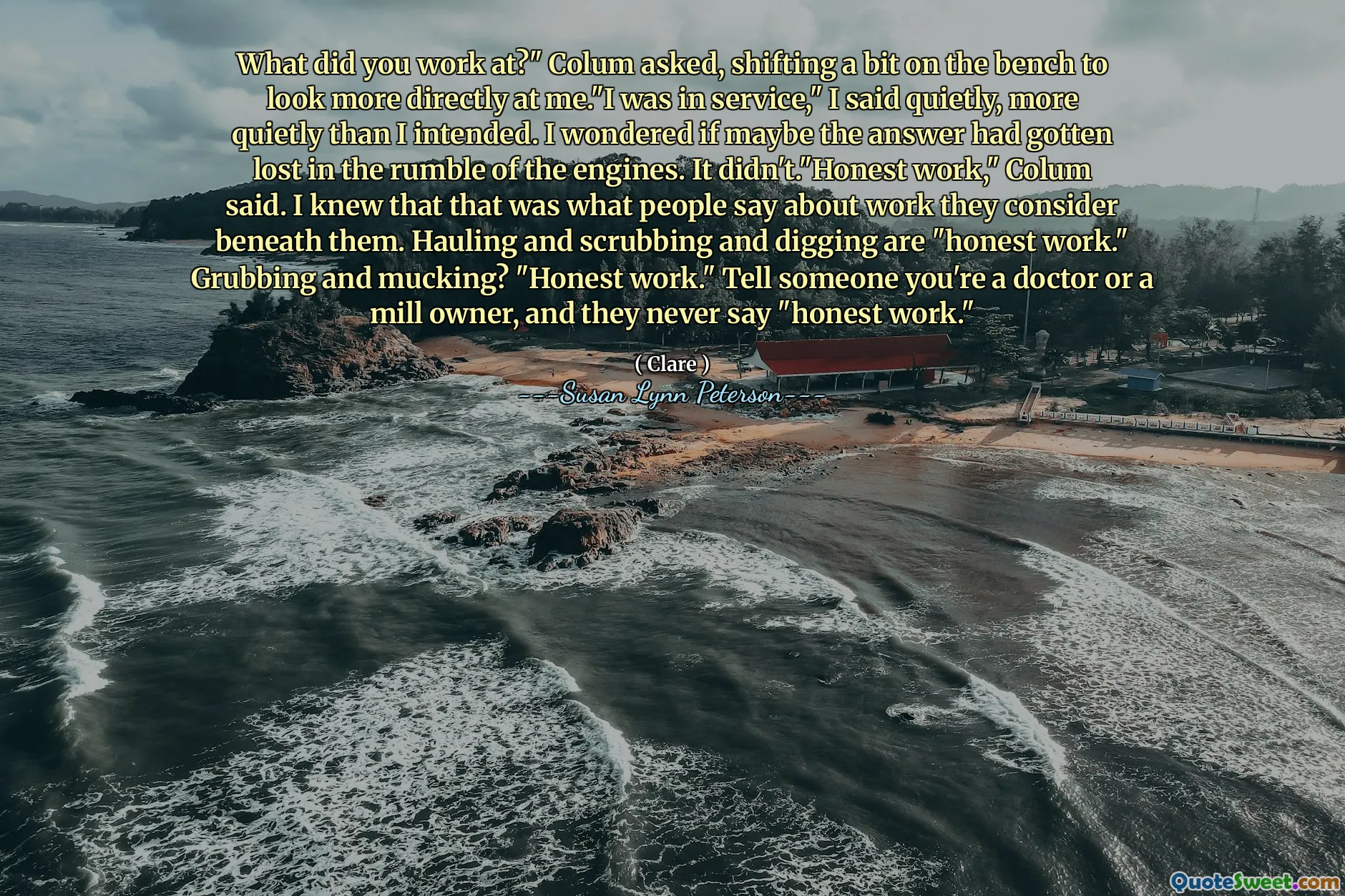
What did you work at?" Colum asked, shifting a bit on the bench to look more directly at me."I was in service," I said quietly, more quietly than I intended. I wondered if maybe the answer had gotten lost in the rumble of the engines. It didn't."Honest work," Colum said. I knew that that was what people say about work they consider beneath them. Hauling and scrubbing and digging are "honest work." Grubbing and mucking? "Honest work." Tell someone you're a doctor or a mill owner, and they never say "honest work."
This quote explores the nuanced perceptions of work and societal value attributed to different professions. The speaker reflects on the concept of 'honest work'—a phrase often used to elevate certain types of labor that are physically demanding or considered humble, such as scrubbing, digging, or working in service. The conversation highlights how societal judgments influence how professions are perceived; manual labor, despite its essential nature, can often be dismissed or undervalued compared to careers like medicine or industrial ownership. This dichotomy raises important questions about dignity, respect, and the arbitrary hierarchies we impose on different types of work. The speaker's quiet admission and introspection suggest an internal conflict or silent awareness of these judgments. It prompts thought about how value is assigned to work, and whether such valuation is fair or rooted in societal bias. Recognizing the importance and dignity inherent in all work, regardless of societal status, is vital to understanding true respect for meaningful labor. It also serves as a reminder that many forms of honest labor are indispensable to society's functioning, despite often not receiving the recognition they deserve. This quote encourages reflection on societal stereotypes and calls for a more equitable appreciation of all jobs that contribute to human life and well-being.


